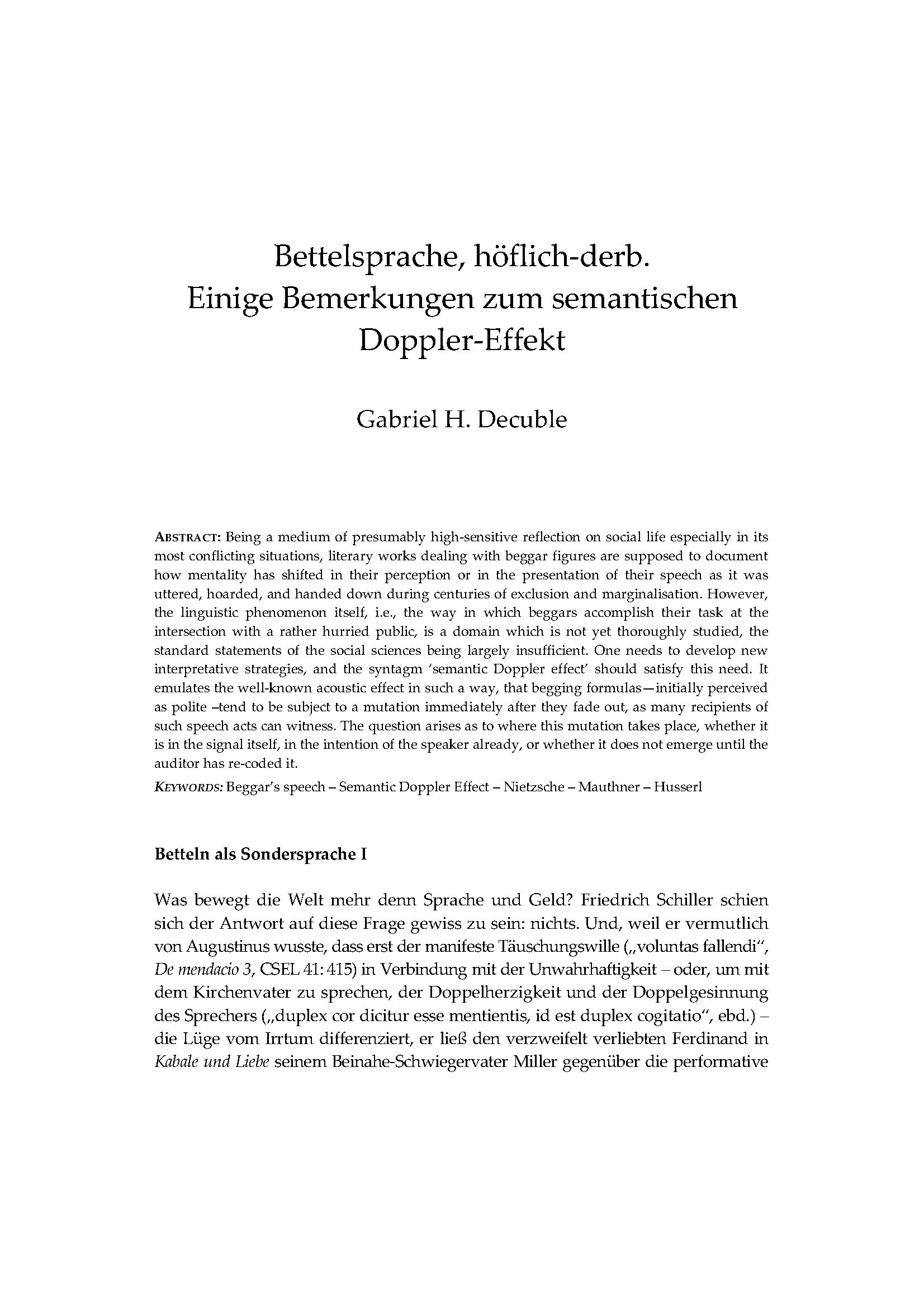Bettelsprache, höflich-derb. Einige Bemerkungen zum semantischen Doppler-Effekt
DOI:
https://doi.org/10.62229/bbzg5-23/2Keywords:
Beggar’s speech, Semantic Doppler Effect, Nietzsche, Mauthner – HusserlAbstract
Being a medium of presumably high-sensitive reflection on social life especially in its most conflicting situations, literary works dealing with beggar figures are supposed to document how mentality has shifted in their perception or in the presentation of their speech as it was uttered, hoarded, and handed down during centuries of exclusion and marginalisation. However, the linguistic phenomenon itself, i.e., the way in which beggars accomplish their task at the
intersection with a rather hurried public, is a domain which is not yet thoroughly studied, the standard statements of the social sciences being largely insufficient. One needs to develop new interpretative strategies, and the syntagm ‘semantic Doppler effect’ should satisfy this need. It emulates the well-known acoustic effect in such a way, that begging formulas—initially perceived as polite –tend to be subject to a mutation immediately after they fade out, as many recipients of
such speech acts can witness. The question arises as to where this mutation takes place, whether it is in the signal itself, in the intention of the speaker already, or whether it does not emerge until the auditor has re-coded it.





